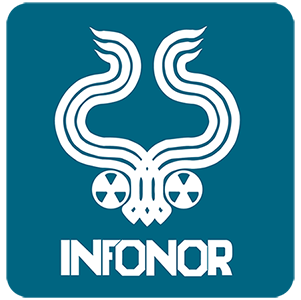Workshop Chair : PhD. John Castro (UDA – john.castro@uda.cl), Mg. Ítalo Donoso (UCN – italo.donoso@ucn.cl)
Date: Wednesday, September 01
Time: 15:00 (See details in the Schedule)
Playlist: Youtube
This workshop provides an opportunity to present scientific papers that have as their object topics related to the improvement, creation and processes around a software product.

Mg. Ing. Abraham Dávila Ramón
Pontificia Universidad Católica del Perú (PUCP), Perú.
Translation: In 2011, the publication of the ISO/IEC 29110 series of standards began, which proposes a set of process profiles that small organizations (up to 25 people) can adopt to improve their competitiveness. In Peru, as part of the ProCal-ProSer Project between 2013 and 2016, a Software Process Improvement Project Program was carried out involving 10 micro software development companies, where final year students, from the computer engineering program; supported the implementation of the Basic software engineering profile (ISO/IEC 29110-5-1-2). The Project has allowed several results in the University-Business collaboration and has allowed the realization of several positive externalities and lessons learned at the level of the implementation of the model and the project program.
Abraham Dávila is a Principal Professor of the Computer Engineering program at the Pontificia Universidad Católica del Perú and is a Doctoral Candidate in Software Engineering, in the field of process improvement.
He participates as Secretary of the Technical Committee of Standardization in Software Engineering and Information Systems before INACAL, the Peruvian standardization body and is a member of JTC1/SC7 WG24 IT Technical Committee, software engineering subcommittee and working group 24 in charge of the development of standards on profiles (software and systems life cycle processes) for small organizations (up to 25 people) that develop software and systems.
He has carried out research projects in the software industry with funds from different sources in Peru. The projects, successively, have allowed the realization of Software Process Improvement Projects Programs (PPMPS) between 2006 and 2020; where MoProSoft software process models have been implemented in the COMPETISOFT project, ISO/IEC 29110 in the ProCal-ProSer Project and a Services model for small organizations in ProCal-ProSer. In the PPMPS, work has been done with undergraduate and graduate students and professors from the participating universities. Papers have been published in conferences and journals. Students have been oriented to obtain their master’s degrees and professional engineering degrees.

PhD. Danilo Martínez Espinoza
Universidad de las Fuerzas Armadas ESPE, Ecuador.
Translation: Mobile application development over the last decade has seen a significant increase in its share of the software market. While there are specific characteristics that separate it from traditional software development, there is a lack of guidance on the issues encountered during the mobile software development process. In order to define a mobile application development framework that considers the specific characteristics of mobile application development, we conducted three empirical studies that allowed us to identify the main trends in the mobile application software process and to discover the main challenges for application development. We have organized the findings into a framework that integrates the specific challenges of mobile development that we have called Mobile Ilities, with software development activities that are linked through an agile process. The results of initial testing with computer science undergraduate students are encouraging. Our approach has guided novice developers throughout the process of creating a final product, combining developers’ existing knowledge of Scrum and XP with the specific characteristics of mobile development, and providing mechanisms for linking these characteristics with elements of the development process.
Danilo Martínez Espinoza is a Systems Engineer (2001) from Escuela Superior Politécnica de Chimborazo (Riobamba – Ecuador), Master in Software & Systems (2013) and PhD in Software, Systems and Computing (2020) from Universidad Politécnica de Madrid (Spain). He is a research professor in the Department of Computer Science at the University of the Armed Forces ESPE in Quito-Ecuador. He has held several management positions at the university, such as Director of the Systems and Computer Engineering Career (2009-2011), member of the Honorable Academic Council of ESPE (2009-2011) and Research Coordinator of the Computer Science Department (2013-2015) of ESPE.
He has participated as reviewer in several international scientific conferences and scientific journals. He is a member of the Editorial Committee of the electronic journal RECIBE of the University of Guajadalara (Mexico). Currently, he is editor of the scientific journal GEEKS DECC Report of the Computer Science Department of the Universidad de las Fuerzas Armadas ESPE and Coordinator of the Software Development Club of ESPE.
His areas of interest are software engineering, app development process, multimedia, human-machine interaction, user experience, usability, graphic design and ICT in education. He has directed several undergraduate and graduate theses. He is author of 12 papers in international conferences and a JCR Q1 journal in the area of software engineering.

Dr. Gabriel García Mireles
Universidad de Sonora, México.
Translation: Sustainable development is a topic of interest to all scientific disciplines, including computer science. The purpose of this talk is to present the main advances in the study of environmental sustainability in the area of software engineering. In particular, the concept of environmental sustainability and its relationship with the quality of application software will be addressed considering two perspectives: product quality and process quality. From the product quality perspective, some relationships between sustainability goals and the product quality characteristics described in the ISO/IEC 25010 standard are described. Considering the process perspective, the main methods proposed to address sustainability aspects at various stages of the software life cycle are described. In addition, based on the ISO/IEC 29110 standard, a set of tasks that are related to environmental sustainability is presented.
Gabriel Alberto García Mireles is currently a full professor at the University of Sonora and is attached to the Department of Mathematics where he teaches subjects in the area of software engineering that make up the undergraduate program in Computer Science. He received his Ph.D. degree in Advanced Information Technology from the University of Castilla – La Mancha. His research work focuses on studying software quality considering the impact of software process improvement initiatives on software product quality. In the last decade, he has studied the areas of opportunity offered by software lifecycle process standards to address the product quality characteristics described in ISO/IEC 25010. He has focused his attention on identifying quality characteristics that are relevant to software products developed by very small companies. In addition, he has investigated the relationship between sustainable development practices and software quality. Other topics he has explored are related to accessibility and gamification. He has published articles in journals and conference proceedings in the area of software engineering, both of which are international in scope.
